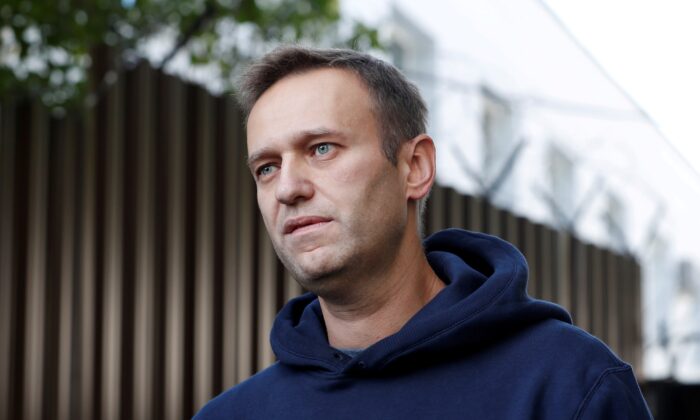Quad Foreign Ministers to Discuss CCP Virus Pandemic in Japan
BERLIN鈥擥ermany’s Foreign Minister Heiko Maas has called for new European Union sanctions against Russia over the poisoning of opposition leader Alexei Navalny with an internationally banned nerve agent.
Navalny emerged in recent weeks from a coma after suddenly falling ill during a flight in Siberia and being air-lifted to Berlin for treatment. German doctors say he was poisoned with Novichok, a Russian nerve agent.
Germany, France, and other Western countries have demanded an explanation from the Kremlin for Navalny’s illness. Russia says it has seen no firm evidence he was poisoned and denies involvement in any attack on him.
 German Minister of Foreign Affairs Heiko Maas speaks to the press during a Foreign ministers affairs council in Brussels, on Sept. 21, 2020. (Olivier Hoslet/Pool/AFP via Getty Images)
German Minister of Foreign Affairs Heiko Maas speaks to the press during a Foreign ministers affairs council in Brussels, on Sept. 21, 2020. (Olivier Hoslet/Pool/AFP via Getty Images)“I am convinced that there will be no longer any way around sanctions,” Maas told news portal t-online in an interview on Saturday.
“Sanctions must always be targeted and proportionate. But such a grave violation of the International Chemical Weapons Convention cannot be left unanswered. On this, we’re united in Europe,” Maas added.
Germany currently holds the rotating presidency of the 27-member bloc. EU leaders will discuss their reaction and possible sanctions against Russia at their next summit on Oct. 15-16.
“If the result of the German, Swedish and French laboratories is confirmed, there will be a clear response from the EU. I’m sure about that,” Maas said.
The Navalny case has worsened relations between Moscow and a number of Western countries. Germany has faced calls to halt the nearly-completed Nord Stream 2 pipeline, which is meant to bring more Russian gas directly to Germany.
Asked if European sanctions against Russia should include Nord Stream 2, Maas said there were more than 100 European companies involved in the project, half of them in Germany.
“So many European workers would suffer from a construction freeze,” Maas said.
Nord Stream 2 is led by Russia’s state gas giant Gazprom, with half of the funding provided by Germany’s Uniper and BASF’s Wintershall unit, Anglo-Dutch company Shell, Austria’s OMV and France’s Engie.
By Michael Nienaber
Focus News: Germany Urges EU to Impose Sanctions Against Russia Over Navalny Case
People of All Classes Try to Flee China’s Repressive Society, Seek Refuge in European Countries
